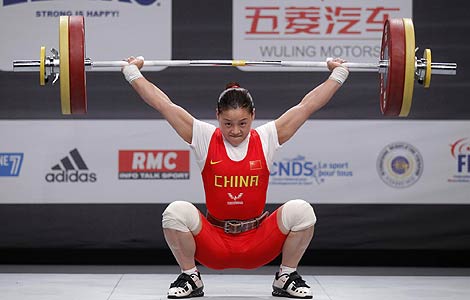Food-testing costs passed on to consumers
Updated: 2011-11-10 07:28
By Zhou Wenting (China Daily)
|
|||||||||
TIANJIN - After a series of scandals shook consumers' confidence in recent years, Chinese dairy companies have begun to invest heavily in labs meant to hold their products to a high standard.
Experts said it was very likely that consumers were paying for this work.
Wang Dingmian, chairman of the Guangzhou Dairy Association, said many experts and dairy businesses spoke at the 2011 China Dairy Development Forum, which began on Oct 23, about the increasing price of consumer products and about expensive lab costs.
"For example, the cost of purchasing and processing a ton of milk powder is 31,000 yuan ($4,900)," Wang said. "And the cost of testing may reach 4,000 yuan, excluding the costs of equipment maintenance and technical improvements."
Industry insiders agreed that the investment in lab equipment has raised the companies' production costs - and is contributing to an increase in food prices.
"If businesses keep spending huge amounts of money on tests to guarantee the quality of their products, food prices won't cease increasing," said Sha Jie, a food quality supervisor in Tianjin's Beichen district.
A national regulation adopted in 2006 required dairy factories to test milk for the presence of 14 different substances, a number that rose to 37 in 2010. Baby formula now must be tested for the presence of 64 different substances.
Wang Weimin, secretary general of the Xi'an's dairy association, said the methods were adopted after baby formula tainted with chemical melamine made 300,000 infants sick in 2008 and killed six others. Melamine had been added to the formula to make it appear to contain more protein than it actually did.
"These methods have undoubtedly placed heavier costs on businesses," Wang said.
Experts said milk prices have increased by 10 to 20 percent since 2008, despite the government's attempts to prevent that.
"Dairy farmers are the ones who have been harmed, because businesses have tried to avoid passing the increasing costs on to consumers," Wang said. "The price of raw milk bought from farmers fell by 15 percent below what it had been this past year."
Xu Caihua, general manager of the Bright Mengde Dairy in Tianjin, said: "We have to invest huge sums in lab technology and equipment."
The company has a large laboratory filled with expensive equipment, including 32 devices that test for the presence of contaminants and other nutritional indicators and have a value of 3 million yuan each.
Xu said operating and maintaining the machines costs at least 6,000 yuan a day.
Xu said the dairy can produce 1,500 tons of milk a day but only makes a fourth of that because "the lab just can't keep up with production.
"Some tests take a day. But if we buy more equipment to speed up the process, the price of milk will continue to rise because the company can't afford that equipment."
Testing products' quality is not just expensive for private companies. Large amounts of taxpayers' money also go to ensuring the government can play its supervisory role.
Tianjin's Beichen district spent more than 10 million yuan to monitor the safety of food in the first six months of this year.
"If the figure for the entire country were known, it would be astonishing," said Zhao Haihang, director of the district's quality and technical supervision bureau.











